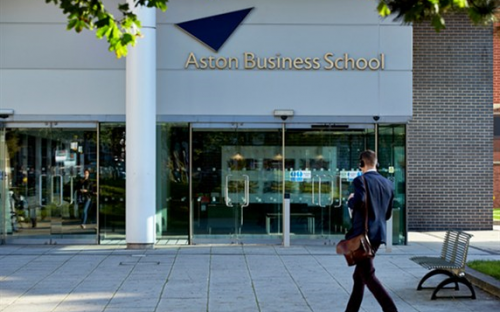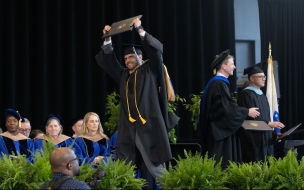The mechanical engineering graduate began his career at Alstom, the French industrial champion, more than a decade ago as a commissioning engineer.
A transition into the commercial business saw him rise to sales manager, a position he held for three years, before becoming an operations manager in 2011.
The MBA at Aston, which he completed this year, gave him the tools to engineer a way into a general manager’s role three months ago in May.
Alexander says the degree has helped him boost the company's profitability, and greatly enhanced his communication skills.
Why did you decide to begin an MBA degree?
My first degree was in mechanical engineering at the University of Birmingham. I then worked my way up to quite a senior role as a site manager for Alstom Power. But I also found the commercial and business side of selling and delivering quite advanced industrial services exciting.
Following a really successful project, the station director of a client was talking to me about the MBA he had done at Aston — it sounded very interesting and appealing. He actively encouraged me to do one for myself. And I’m glad that I did!
What makes Aston Business School unique?
Firstly, the very strong and world-renowned research group looking at advanced industrial services, led by Professor Tim Baines. Secondly, the strong reputation and ranking within the top-100 MBA programs was also appealing.
You studied a part-time MBA. What flexibility did Aston offer?
The part-time route was very challenging — I was balancing the MBA with my day job. However Aston was great, and very flexible. For example, towards the end of my second year my daughter was born, but I was able to re-arrange my exams. Likewise, for my MBA dissertation, Aston was just as flexible.
What are the challenges of studying part-time?
Finding a balance between carrying out my day job, going to lectures, studying at the weekends, and my family. In order to do justice to the MBA and to be able to gain valuable knowledge, I found that I would have to dedicate 10-14 hours per week for self-studying outside of lectures.
How has the MBA contributed to:
A) Securing your job at Alstom Power.
The MBA has had a number of benefits, not just for myself but also directly for Alstom Power. For example, it has enabled me to impact the profitability of our service operations. At the same time, my skills when presenting and communicating to a wide range of audiences — from the shop floor to very senior managers — have been very noticeable.
B) Helped you progress day-to-day in your career.
The MBA has definitely given me the knowledge and skills to progress already within my career, recently helping me to be promoted to general manager.
What is your biggest lesson learnt?
How to analyse and understand a wide range of complex and often incomplete sources of information, and then synthesise them into a coherent and compelling argument and short presentation that gets straight to the point.
RECAPTHA :
cb
1c
65
c4








